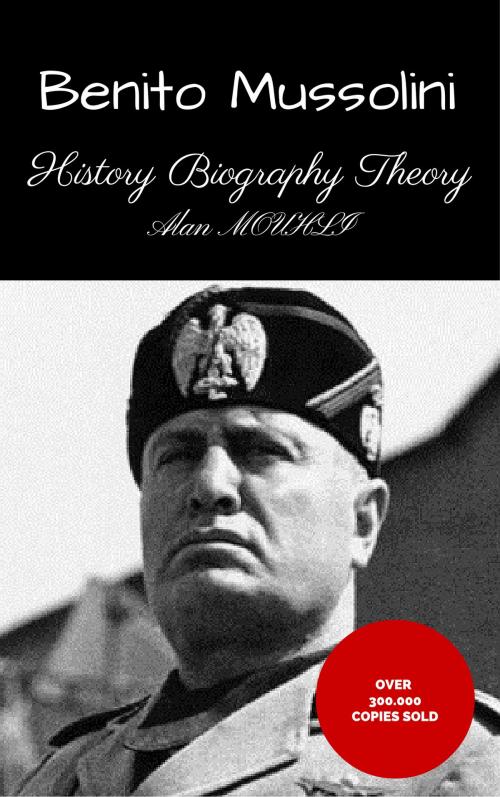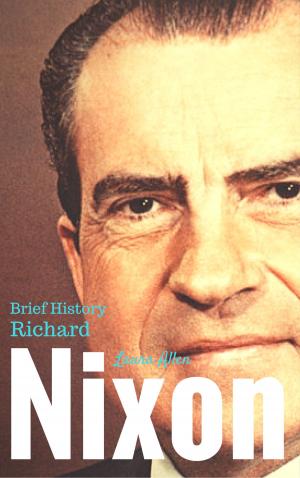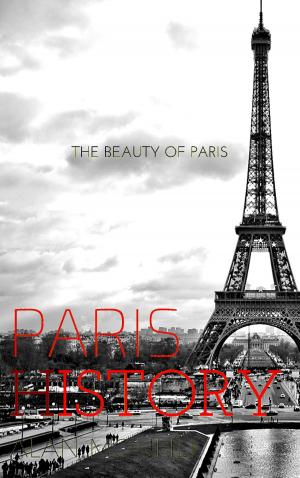| Author: | Alan MOUHLI | ISBN: | 1230001213386 |
| Publisher: | Alan MOUHLI | Publication: | July 3, 2016 |
| Imprint: | Language: | English |
| Author: | Alan MOUHLI |
| ISBN: | 1230001213386 |
| Publisher: | Alan MOUHLI |
| Publication: | July 3, 2016 |
| Imprint: | |
| Language: | English |
Benito Mussolini (born July 29, 1883 at Dovia di Predappio in the province of Forlì-Cesena in the Emilia-Romagna region of Italy, died April 28, 1945 at Giulino di Mezzegra) is a journalist and Italian statesman, President Council of 1922-1943.
Founder of fascism, he is Chairman of the Kingdom of Italy, from 31 October 1922 to 25 July 1943, First Empire marshal of March 30, 1938 to July 25, 1943, and president of the Italian Social Republic (RSI) September 1943 to April 1945. It is commonly referred to as the Duce, the Italian word derived from the Latin Dux and meaning "chief" or "Guide".
He was first a member of the Italian Socialist Party (PSI) and director of the socialist newspaper Avanti! from 1912. Anti-interventionist convinced before World War II, he changes his opinion in 1914, expressing support for the entry in war of Italy. Expelled from the PSI in November 1914, he created his own newspaper, Il Popolo d'Italia (The People of Italy) taking nationalist positions close to those of the petty bourgeoisie. In the immediate postwar period, taking advantage of the discontent of the "mutilated victory", he created the National Fascist Party (PNF) in 1921 and presents the country with a nationalist political program, authoritarian, anti-socialist and anti-union, earning it the support of the petty bourgeoisie and part of the industrial and agrarian middle class.
In the context of strong political and social instability following the Great War, it is the taking of power by forcing out to institutions with the help of the shares of squadristi and intimidation culminating October 28, 1922 with the March on Rome . Mussolini gets the load form the government on October 30, 1922. In 1924, after the disputed election victory and the assassination of the socialist deputy Giacomo Matteotti, Mussolini assumes full responsibility for the situation. The series "Lois fascistissimes" attributed to him dictatorial powers and made Italy a one-party state.
After 1935, he approaches the Nazi regime of Adolf Hitler, with whom he establishes the Pact of Steel (1939). Convinced a conflict with the rapid conclusion, he enters the Second World War at the side of Nazi Germany. The military defeats of Italy and the Allied landing on Italian soil cause its outvoted by the Grand Council of Fascism July 24, 1943: it was then deposed and arrested by order of the king. Released by the Germans, he established in northern Italy the Italian Social Republic. April 25, 1945, while attempting to flee to the Valtellina disguised as a German soldier, he was captured by a group of supporters that taser with his mistress Clara Petacci. Their bodies are delivered to an angry crowd, hung by their feet, in Piazzale Loreto in Milan.
Benito Mussolini (born July 29, 1883 at Dovia di Predappio in the province of Forlì-Cesena in the Emilia-Romagna region of Italy, died April 28, 1945 at Giulino di Mezzegra) is a journalist and Italian statesman, President Council of 1922-1943.
Founder of fascism, he is Chairman of the Kingdom of Italy, from 31 October 1922 to 25 July 1943, First Empire marshal of March 30, 1938 to July 25, 1943, and president of the Italian Social Republic (RSI) September 1943 to April 1945. It is commonly referred to as the Duce, the Italian word derived from the Latin Dux and meaning "chief" or "Guide".
He was first a member of the Italian Socialist Party (PSI) and director of the socialist newspaper Avanti! from 1912. Anti-interventionist convinced before World War II, he changes his opinion in 1914, expressing support for the entry in war of Italy. Expelled from the PSI in November 1914, he created his own newspaper, Il Popolo d'Italia (The People of Italy) taking nationalist positions close to those of the petty bourgeoisie. In the immediate postwar period, taking advantage of the discontent of the "mutilated victory", he created the National Fascist Party (PNF) in 1921 and presents the country with a nationalist political program, authoritarian, anti-socialist and anti-union, earning it the support of the petty bourgeoisie and part of the industrial and agrarian middle class.
In the context of strong political and social instability following the Great War, it is the taking of power by forcing out to institutions with the help of the shares of squadristi and intimidation culminating October 28, 1922 with the March on Rome . Mussolini gets the load form the government on October 30, 1922. In 1924, after the disputed election victory and the assassination of the socialist deputy Giacomo Matteotti, Mussolini assumes full responsibility for the situation. The series "Lois fascistissimes" attributed to him dictatorial powers and made Italy a one-party state.
After 1935, he approaches the Nazi regime of Adolf Hitler, with whom he establishes the Pact of Steel (1939). Convinced a conflict with the rapid conclusion, he enters the Second World War at the side of Nazi Germany. The military defeats of Italy and the Allied landing on Italian soil cause its outvoted by the Grand Council of Fascism July 24, 1943: it was then deposed and arrested by order of the king. Released by the Germans, he established in northern Italy the Italian Social Republic. April 25, 1945, while attempting to flee to the Valtellina disguised as a German soldier, he was captured by a group of supporters that taser with his mistress Clara Petacci. Their bodies are delivered to an angry crowd, hung by their feet, in Piazzale Loreto in Milan.















